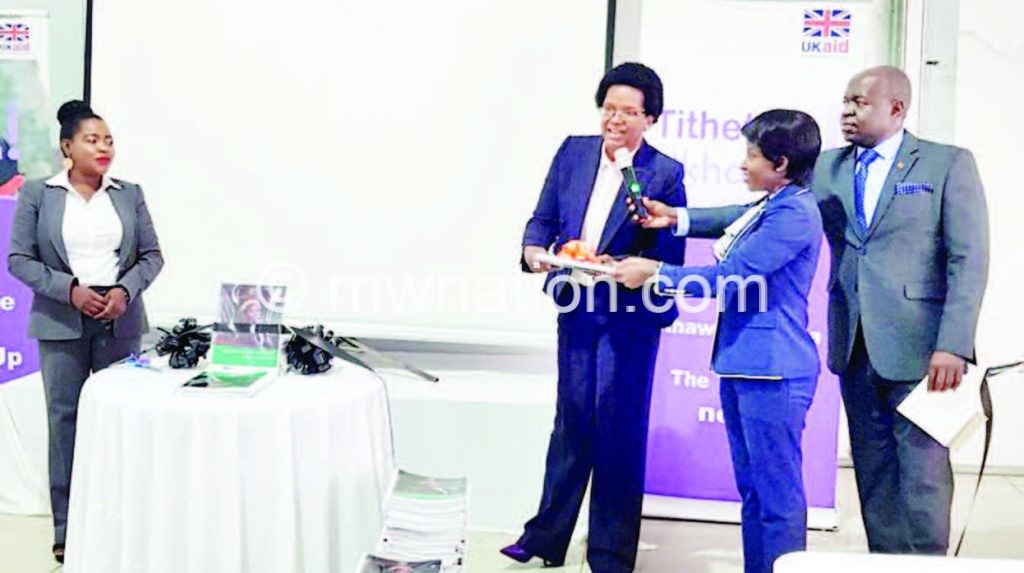Sexual violence victims let down—Judiciary
The Judiciary has made a rare admission that judicial officers have at times let down victims of sexual violence and gender-based violence (GBV) cases.
Recently promoted Justice of Appeal Ivy Kamanga made the admission yesterday in Lilongwe during the launch of the Judiciary Handbook for the handling of violence against women and girls cases as well as electronic case management system.

She said time has come for judicial officers to have eyes for the victims.
Said Kamanga: “If there is a place where gender-based violence victims are supposed to feel safe, it is the court. But if we have a courtroom where a judicial officer can be threatened by an accused person, then we will not have a safe environment for victims of gender-based violence.”
In an interview later, the Justice of Appeal, who was in the five-judge panel of the High Court of Malawi sitting as the Constitutional Court that nullified the May 21 2019 presidential election and ordered a fresh election, said the disappointment has come in different forms and from all angles of the court.
Said Kamanga: “When you look at how people are apprehensive about coming to court and the reasons that they give for not wanting to come to court to testify when they have been victims of gender-based violence, I could say that the courts have contributed to an extent.
“The contribution goes all the way to the first point of contact; the court marshall. If he or she does not know where to put a victim of gender-based violence in case of sexually-related offence like child defilement, the victim will be threatened.
“Then we have prosecutors, especially in the manner they ask questions, language by the judicial officers, among others.”
She expressed hope that the handbook is looking at both criminal and civil justice systems while the case management system will simplify the work of the Judiciary.
The Judiciary gender-based violence case handling handbook and the electronic case management system have been rolled out in three districts—Lilongwe, Mangochi and Karonga—with technical expertise from the Tithetse Nkhanza programme.
The two milestones have come after a needs assessment the Judiciary conducted on its structures and came up with the solutions that have given birth to the two achievements, according to the programme’s team leader Grace Malera.
She said: “This is a long-term partnership we have developed with the judiciary to develop the necessary tools so that they are more responsive, accessible and accountable hence the electronic case management system only for cases of violence against women and girls.”
Malera said gender and women violence have reached crisis levels in Malawi with the highest levels of violence reported against women and girls.
On his part, Foreign, Commonwealth and Development Office (FCDO) in Malawi deputy development director Martin Dawson said Malawi needs problem-driven strategies; hence, the Tithetse Nkhanza programme is heavily premised on a learning and interactive approach.
“We need evidence-based programming. We need new and innovative approaches for the prevention and service delivery for survivors of violence. More than ever before, we need more responsive, accountable and effective service delivery,” he said.
Minister of Homeland Security Richard Chimwendo Banda this week came under fire for urging people in the country to beat up perpetrators of sexual violence before handing them over to police.
In a video that the minister posted on his Facebook page, which has since gone viral on social media, the minister is seen urging chiefs to help end the vice in their areas. He said perpetrators should be beaten up before being taken to police.
Police earlier reported that the country has recorded over 5 000 cases of defilement and rape since 2018; hence, the need for concerted efforts to deal with the problems.





